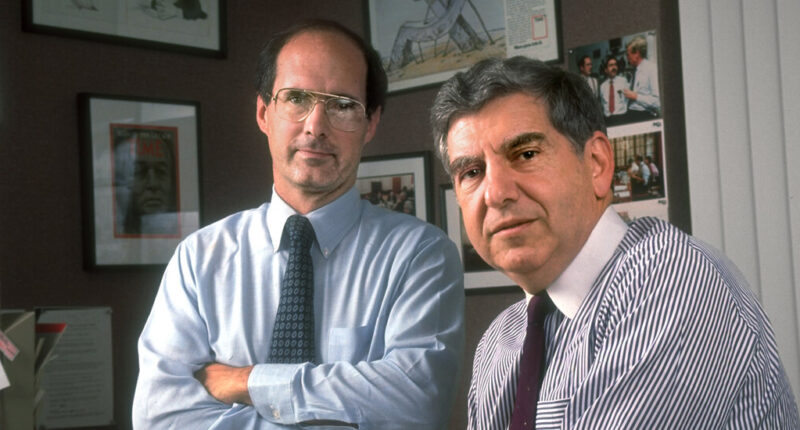
“What we are confronted with in these two remarkable volumes of Khrushchev’s,” Harrison E. Salisbury wrote in The New York Times in 1974, “is some 500,000 words of observations, firsthand accounts, afterthoughts, musings, political back-stabs, rambling anecdotes, warnings for the future, pietistic platitudes and political common sense by one of the most idiosyncratic (and vital) statesmen of our day.”
A State Department brief on the book said, “Khrushchev concludes that if Stalin were alive today he would vote that he be brought to trial and punished” for his “cruel and senseless” crimes. Those crimes included torture, mass incarceration and the deportation of ethnic groups from their ancestral homelands, as well as a policy-driven famine that killed millions and the executions of dissidents in the hundreds of thousands.
In 1989, Mr. Louis released the last 300 hours of tapes, which had been secreted in a vault in Zurich.
A third volume of the memoirs, “Khrushchev Remembers: The Glasnost Tapes,” which was translated and edited by Mr. Schecter and Vyacheslav V. Luchkov, a Soviet scholar, was published in 1990, after Khrushchev’s death and as the Soviet Union was coming apart. Recalling the 1962 Cuban missile crisis in that book, Khrushchev branded Fidel Castro a “hothead” who had beseeched Moscow to attack the United States.
Mr. Schecter, who was a Nieman fellow at Harvard, later recalled in Nieman Reports, “What I took away from the memoirs was that Khrushchev played an instrumental role in destroying Soviet Communism with his revelations, which he intended to salvage and restore his own place in history.”
Mr. Schecter later collaborated with Nguyen Tien Hung, a former adviser to the President Nguyen Van Thieu of South Vietnam, to write “The Palace File: The Remarkable Story of the Secret Letters From Nixon and Ford to the President of South Vietnam and the American Promises That Were Never Kept” (1986).
That book exposed the Nixon administration’s deceptions in persuading Saigon’s government to sign the Vietnam peace accords by offering empty promises that if the North Vietnamese reneged, Washington would retaliate with heavy bombing.
Source: | This article originally belongs to Nytimes.com









